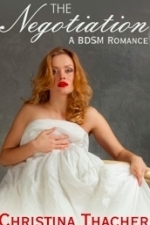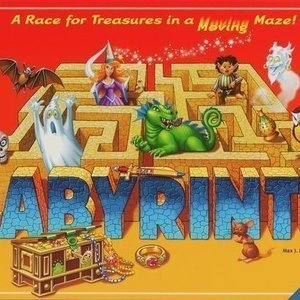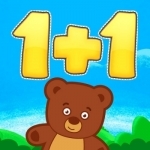
AudioTools
Music and Utilities
App
AudioTools is a suite of professional-grade audio and acoustic analysis apps. Included in the price...

Xequence | MIDI Workstation
Music and Productivity
App
Xequence is an advanced linear MIDI Sequencer and Keyboard / Controller for iPhone and iPad. NOTE:...

DJ Player Professional :: Music Mixing for Pro DJs
Music and Productivity
App
Get creative with the state of the art professional DJ technology. DJ Player Pro goes beyond the...
Purple Phoenix Games (2266 KP) rated Labyrinth in Tabletop Games
Sep 29, 2020
Labyrinth is a game of tile placement and route building with a modular board in which you are trying to navigate the maze to collect various treasures. To setup the game, shuffle the maze tiles and place them randomly on the empty spaces of the board. There will be 1 tile left over. Shuffle the treasure cards and split them evenly between all players. Players may only look at the top card of their stack at a time. On your turn, you are trying to get your pawn to the tile showing the treasure from your card. You do this by shifting the board and creating new pathways through the maze. Take the extra tile, and add it to a row or column, effectively shifting the entire line in one direction. Once you have shifted the maze, move your pawn as far as possible along the open pathway. If you reach your treasure tile, flip over your card. You now look at the next card in your stack, and on your next turn will begin moving towards that tile. If you don’t reach your treasure tile, that is fine. Just try to set yourself up to reach it on your next turn! The game ends once a player has flipped over all of their treasure cards and returned their pawn to its starting position.
I loved Labyrinth as a kid, and I still love it as an adult. The gameplay is pretty engaging, and now that I’m older, I can appreciate the strategy required of the game way more. One of the most fun parts of the game is the act of shifting the tiles. It’s just fun to watch the rows shift, creating new pathways and trapping opponents in dead-end routes. Not just that, but the amount of strategy you need for success is crazy! You have to be thinking several turns in advance, trying to figure out how to shift the randomly set-up maze to your maximum benefit, while also trying to anticipate how your opponents might shift the maze as well. There really is no down-time in Labyrinth, and that keeps it exciting for such a simple game.
The one thing I do not necessarily like about Labyrinth is that you are only allowed to look at your top treasure card at a time. Sometimes you spend several turns getting to a treasure tile, just to look at your next card and realize that you passed through that tile several times on your way here. I guess it would probably make the game easier overall if you could see all of your cards at once and decide your path from there. Not that I necessarily want an easier game, it can just get frustrating sometimes when you have to be traveling back and forth across the board for every single card.
Labyrinth is definitely a game that I will keep in my collection forever. It was a childhood favorite of mine, and I still love to bring it out with my siblings for some good nostalgia coupled with brain-burning strategy. I can’t wait to have children of my own so that I can play this game with them as well. Just because it’s an old game, doesn’t mean that it’s a bad game! Give it a try if you haven’t, because I think you’ll love it. Purple Phoenix Games gives Labyrinth a twisting 8 / 12.

Interactive Sketchbook
Entertainment and Education
App
Learn professional techniques, sketch your own ideas, and collect your digital art! Practice...

News Explorer
News and Entertainment
App
News Explorer is a powerful yet remarkably easy-to-use RSS, JSON, Atom and Twitter newsreader with...

The Negotiation: A BDSM Romance
Book
Sebastian stared at her. Like magic, she now conveyed complete respect and submission. His cock...



